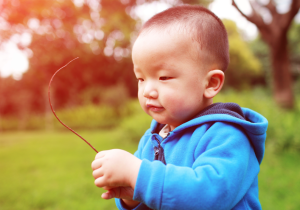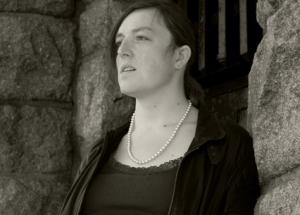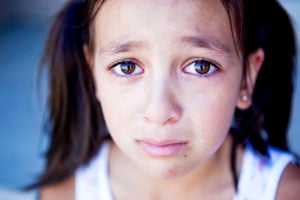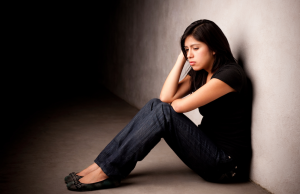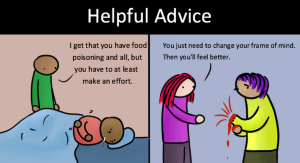
Source: Huffington Post
Originally published on The Body is Not an Apology and republished here with their permission.
In the immortal words of Brianna in the classic film Bring It On: All or Nothing, “I’ve always had a big ass. It runs in my family. We’re a big-assed family.”
My family never used to do “thin” well. My father hovered between “normal” and “more to love,” my mother had a substantially emphasised hourglass shape, and both of my younger brothers were noticeably chubby.
As for me? I was fat.
Things have changed in the past decade or so. My mother exercised half her arse off (literally), and now basically eats only meat in order to keep it off. My father has successfully shaken off excess weight.
The younger of my two brothers grew up and lost all of his chubbiness. And, perhaps most significantly, the older of my two brothers lost about 35kg very quickly with the Dukan diet and has managed to keep it off for two years now.
As for me? I’m still fat.
I have likely always been the fattest in my family, and I am certainly the fattest now. I’m the shortest and the heaviest. Both of my brothers have had fat moments, but my fatness was the most consistently present, and I therefore have always been subject to the most fat shame.
When I was growing up, my fatness hovered like an ever-present cloud, having a significant impact on the decisions my parents made when they raised me. My parents are no longer raising me, of course, but they are still fat-shaming, and that shame still affects me, although thankfully, my involvement in activism does lessen the blow somewhat.
I first felt the effect of my family’s fat-shaming ways when I was seven and taken to a dietician.
This woman told little-girl-me a whole bunch of boring diet stuff, most of which I can’t remember. But one thing I do remember, as though it happened yesterday, was that half of my dinner plate had to be veggies.
So every night, when dinner was served, my brothers would get a normal three-way split dinner while I got a heaping pile of veggies and tiny portions of meat and potato.
I hated that. I wasn’t a fan of vegetables at the time, but that wasn’t why I hated it. I hated it because it was unfair.
Another example: A few years later, I was doing martial arts regularly, but I had gotten bored with it. My brothers both felt similarly, and my mother let them both quit without much fanfare.
I stuck it out a little longer, and when I finally decided to quit, Mum asked me what I would be doing instead. I told her that I would be going to drama classes. Drama was something I was interested in at the time, and I was really excited about doing something after school that I genuinely enjoyed.
Mum’s response was to say, in an annoyed why-do-I-have-to-keep-explaining-this kind of voice, “But drama isn’t exercise. What are you going to do for exercise?”
I was angry and hurt that she didn’t seem to care for my choice of hobby, but it was the unfairness, the fact that neither of my brothers had been similarly reprimanded, that was more hurtful to me.
I always felt that I was being punished, over and over again. And for a long time, I didn’t fully understand what I had done that warranted this unfair treatment.
By the time I was a teenager, I understood that being fat was a bad thing, and the diets and exercise routines my parents put me on were, while still extremely annoying, not unfair in my eyes anymore.
I had been told by my family, by my friends, and by the world around me that my fatness was entirely my fault, and that the awful diets and exercise routines were the price I had to pay for being a bad person and allowing myself to become fat in the first place.
What did bother me were the comments – the reminders that I was fat and the insinuations that becoming thin should always be my number one priority. I remember one Easter when I got food poisoning and had to go to hospital. Since I couldn’t eat anything, I lost 2-3kg. My father’s response was to say “Well, let’s hope this continues.”
Even though I honestly believed that my fatness was my fault at the time, this comment was so upsetting that the only way I could deal with it was by going on a sarcastic rant inside my head. It went something like this:
Because, let’s be honest here, everybody: recovering from food poisoning is something you want to do quickly when you are a thin person. But when you’re fat, you want to carry out the excruciating pain, nausea, and dehydration that food poisoning brings for as long as possible, because you will be several kilos lighter by the end of it, and we all know that that’s the most important thing of all!
Fat-shaming comments such as these continue to this day. My mother is particularly skilled at them. Just the other week, we were talking about average heights for men and women in different countries, and she was talking about how she was just above average height for an Australian woman.
She then said, “And the average weight is 70kg. I’m about 10kg over that, because I’m a little taller, and I have more muscle mass.” Then, with a very pointed look at me, she ended with, “You’ve got no excuse.” No? Good thing I wasn’t looking for an excuse then.
I think it makes sense that I got upset when I was fat-shamed. After all, who wouldn’t be upset when someone says something mean or makes them do something they don’t like, regardless of whether or not they felt they deserved it? What was perhaps less logical was the guilt.
See, I love my family, and I am very close to both of my parents. With every diet I failed at as a teenager, and every exercise-related hobby I didn’t like, I felt that I was letting them down in some way.
I wanted my family to be proud of me, and it felt like my inability to be thin impeded their ability to be as proud of me as they could be.
It has been a few years since I was a teenager, and I can safely say that the anger, the hurt, and the guilt have lessened considerably. The biggest recovery point happened when I got involved in activism, and I learned that my fatness was not my fault.
I think a lot of fat people feel as though they’re bad people for not being able to control themselves, or for not being able to meet society’s expectations, or for whatever else.
When I learned that I was not a bad person, and that I am no more to blame for my fatness than I am to blame for my different coloured eyes, I stopped feeling so guilty.
As I have become more aware of the prevalence of the message that fat is bad, the fat-shaming I’ve suffered has become, if not excusable, at the very least understandable. That has helped to lessen the hurt and anger I’ve felt.
Having said that, my family is still fat-shaming, and there is still an unsettling feeling that my fatness will always be a source of frustration for them. I am not made of stone.
As much as the evidence indicates that weight is a nearly impossible thing to control, I still occasionally think that maybe my weight is my fault, and if I tried “just a little harder,” I could successfully lose weight and keep it off, like the older of my brothers has seemed able to do.
The worst thing is that, if I were to lose weight, I think my family would be prouder of me than they have been over anything else I’ve achieved.
Fortunately, I am able to keep things in perspective. My fatness might be something my family doesn’t like, but I can guarantee that they very much like other things about me, just as I like and dislike different things about all of them. I think I’m lucky that I have that perspective on which to fall back.
I believe that everything we go through in life teaches us things, and growing up in a fat-shaming family is no exception. There are battle scars, of course, and many of them still sting. But as I learn more and more to stop apologising for my body, I find those scars are stinging a little less.
Love and Monte Carlos,
Gillian
[do_widget id=”text-101″]
Gillian Brown is a writer for The Body is Not an Apology. You can check out her articles here.
Search our 3000+ articles!
Read our articles about:
Our online racial justice training
Used by hundreds of universities, non-profits, and businesses.
Click to learn more








